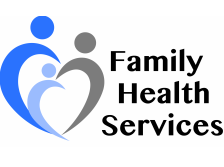Diabetes News – October 2019
October is National Blindness Awareness Month
In August we acknowledged National Eye Exam Month and to re-cap: Diabetes is the leading cause of preventable new onset blindness in working-age adults. Diabetic retinopathy is the most common eye disease for people with diabetes. It occurs when the small blood vessels in the eye are damaged by high levels of glucose in the blood. Anyone with type 1 or type 2 diabetes can have diabetic eye disease and not know it, as it is painless and often has no symptoms until very advanced stages. The earlier it is diagnosed the more effective the treatment. With appropriate care you can reduce the risk of blindness and increase your chances of preserving sight.
Clinical guidelines recommend you take a three-pronged approach to preserving your vision:
- Maintain excellent A1C and blood glucose levels.
- Keep your blood pressure and other health factors, such as your cholesterol, in check.
- Make sure you get your eyes checked YEARLY through a dilated eye exam (an exam in which the doctor places drops in your eyes) or specially validated photographs of your retinas (the inside of the eyes).
October is also Breast Cancer Awareness Month
Breast cancer doesn’t discriminate. Although breast cancer is more prevalent among American white women, African-American women tend to die from the disease more often. Overall, only one percent of American males are diagnosed with breast cancer, but African-American men just like women in their community, are more prone to die from the disease. An estimated 2,670 men will be diagnosed with breast cancer this year in the United States and approximately 500 will die. 1 in 8 women in the United States will develop breast cancer in her lifetime. Breast cancer is the most common cancer in American women, except for skin cancers.
A risk factor is anything that increases your chances of getting a disease, such as breast cancer. But having a risk factor, or even many, does not mean that you are sure to get the disease. Certain breast cancer risk factors are related to personal behaviors, such as diet and exercise. Other lifestyle-related risk factors include decisions about having children and taking medicines that contain hormones.
Lifestyle-related Breast Cancer Risk Factors include:
- Drinking Alcohol – The American Cancer Society recommends that women who drink have no more than 1 drink a day.
- Being Overweight or Obese – being overweight after menopause is more strongly linked with an increased risk of hormone receptor-positive breast cancer, whereas some research suggests that being overweight before menopause might increase your risk of the less common triple-negative breast cancer.
- Not being physically active – The American Cancer Society recommends that adults get at least 150 minutes of moderate intensity or 75 minutes of vigorous intensity activity each week (or a combination of these), preferably spread throughout the week.
For women:
- Not having children – Women who have not had children or who had their first child after age 30 have a slightly higher breast cancer risk overall.
- Not breastfeeding -breastfeeding may slightly lower breast cancer risk, especially if it’s continued for a year or more
- Birth Control – Some birth control methods use hormones, which might increase breast cancer risk.
- Hormone therapy after menopause – Use of combined hormone therapy after menopause increases the risk of breast cancer
- Breast Implants -implants have not been linked with an increased risk of the most common types of breast cancer. However, they have been linked to a rare type of non-Hodgkin lymphoma called breast implant-associated anaplastic large cell lymphoma (BIA-ALCL)
Many of these risk factors overlap with diabetic risk factors/preventions. Higher insulin levels have been linked to some cancers, including breast cancer. Managing your diabetes by keeping a healthy insulin level and lifestyle, you may also lessen your risk factors for breast cancer. Breast cancer is sometimes found after symptoms appear, but many women with breast cancer have no symptoms. This is why regular breast cancer screening is so important. Talk to you PCP about risk factors, screenings and other things you can do for disease prevention and/or treatment.
October is ALSO Pumpkin-Everything Mont! So give this recipe a try. It is packed full of taste and is healthy enough for breakfast (and yummy enough for a dessert).
Pumpkin Muffins
- Prep Time:10 mins
- Cook Time:23 mins
- Total Time:33 minutes
- Recipe yields 12 muffins.
INGREDIENTS
- 1/3 cup canola oil
- 1/2 cup honey
- 2 eggs, at room temperature
- 1 cup pumpkin purée
- 1/4 cup milk
- 2 teaspoons pumpkin spice blend (or 1 teaspoon ground cinnamon, ½ teaspoon ground ginger, ¼ teaspoon ground nutmeg, and ¼ teaspoon ground allspice or cloves)
- 1 teaspoon baking soda
- 1 teaspoon vanilla extract
- 1/2 teaspoon salt
- 1 3/4 cups all-purpose flour
- 1/3 cup old-fashioned oats, plus more for sprinkling on top
- Optional: ½ C cranberries, chopped nuts, or chocolate chips
INSTRUCTIONS
- Preheat oven to 325 degrees Fahrenheit (165 degrees Celsius). Grease all 12 cups of your muffin tin with butter or non-stick cooking spray.
- In a large bowl, beat the oil and honey together with a whisk. Add the eggs, and beat well. Add the pumpkin purée, milk, pumpkin spice blend, baking soda, vanilla extract and salt.
- Add the flour and oats to the bowl and mix with a large spoon, just until combined (a few lumps are ok). If you’d like to add any additional mix-ins***, like nuts, chocolate or dried fruit, fold them in now.
- Divide the batter evenly between the muffin cups. Sprinkle the tops of the muffins with about a tablespoon of oats, followed by a light sprinkle of raw sugar and/or pumpkin spice blend if you’d like. Bake muffins for 22 to 25 minutes, or until a toothpick inserted into a muffin comes out clean.
- Place the muffin tin on a cooling rack to cool. These muffins are delicate until they cool down. You might need to run a butter knife along the outer edge of the muffins to loosen them from the pan.
- These muffins will keep at room temperature for up to 2 days, or in the refrigerator for up to 4 days. They keep well in the freezer in a freezer-safe bag for up to 3 months (just defrost individual muffins as needed).
HEALTH & WELLNESS SCREENING – offered by Firelands Regional Medical Center
You must Pre-register for all Lab Work at 419-557-7840.
Castalia Health & Wellness Screening
Dr. Kuns office
101 South Washington
Castalia, OH
Saturday, October 19
7:30 AM – 9:30 AM
Clyde Health & Wellness Screening
Clyde Urgent Care
1470 W. McPherson Hwy
Clyde, Oh
Saturday, November 9
7:30 AM – 9:30 AM
Health & Wellness Screenings include:
- Complete Blood Count with Metabolic & Lipid Panel (No Eating or Drinking for 12 Hours – Water Allowed – includes liver and kidney function studies, fasting blood sugar, thyroid, cholesterol, HDL/LDL and triglyceride levels along with a complete blood count.) – $45;
- Hemoglobin A1C (A three month report card on how well your blood sugars have been running. A test used to diagnose diabetes and/or to evaluate how well your treatment plan is working.) – $25;
- PSA (Prostate Specific Antigen)- $30;
- Vitamin D – $35;
- TSH – $25
Diet and exercise are an essential part of diabetes management. So is routine testing.
The A1C test—also known as the hemoglobin A1C or HbA1c test—is a simple blood test that measures your average blood sugar levels over the past 3 months. It’s one of the commonly used tests to diagnose prediabetes and diabetes, and is also the main test to help you and your health care team manage your diabetes. Higher A1C levels are linked to diabetes complications, so reaching and maintaining your individual A1C goal is really important if you have diabetes.
Last quarter, 68% of our diabetic patients had an A1C of less than 9%. Talk with your provider to discuss the right options for you, including programs such as DEEP.
Diabetes Empowerment Education Program – DEEP
Just in! One more class has been added for this year.
Oct. 10, 17, 24, 31, Nov. 7 and 14
(Thursday afternoons) 2:30pm to 4:30pm
Perkins Township Hall
2610 Columbus Ave.
Sandusky, OH 44870
COST:
Free
CONTACT:
Serving Our Seniors /Tina Elmlinger
419-624-1856
The presenter is Tina Elmlinger, Healthcare Advocate Trainer. Classes are held once a week for six weeks for Erie County residents who are aged 60 or older and are pre-diabetic or diabetic. A spouse or caregiver may also attend. Advanced registration is required, 419-624-1856. Please call and leave your name, phone number and the name of the program you wish to attend. If the class is cancelled, you will be notified.



